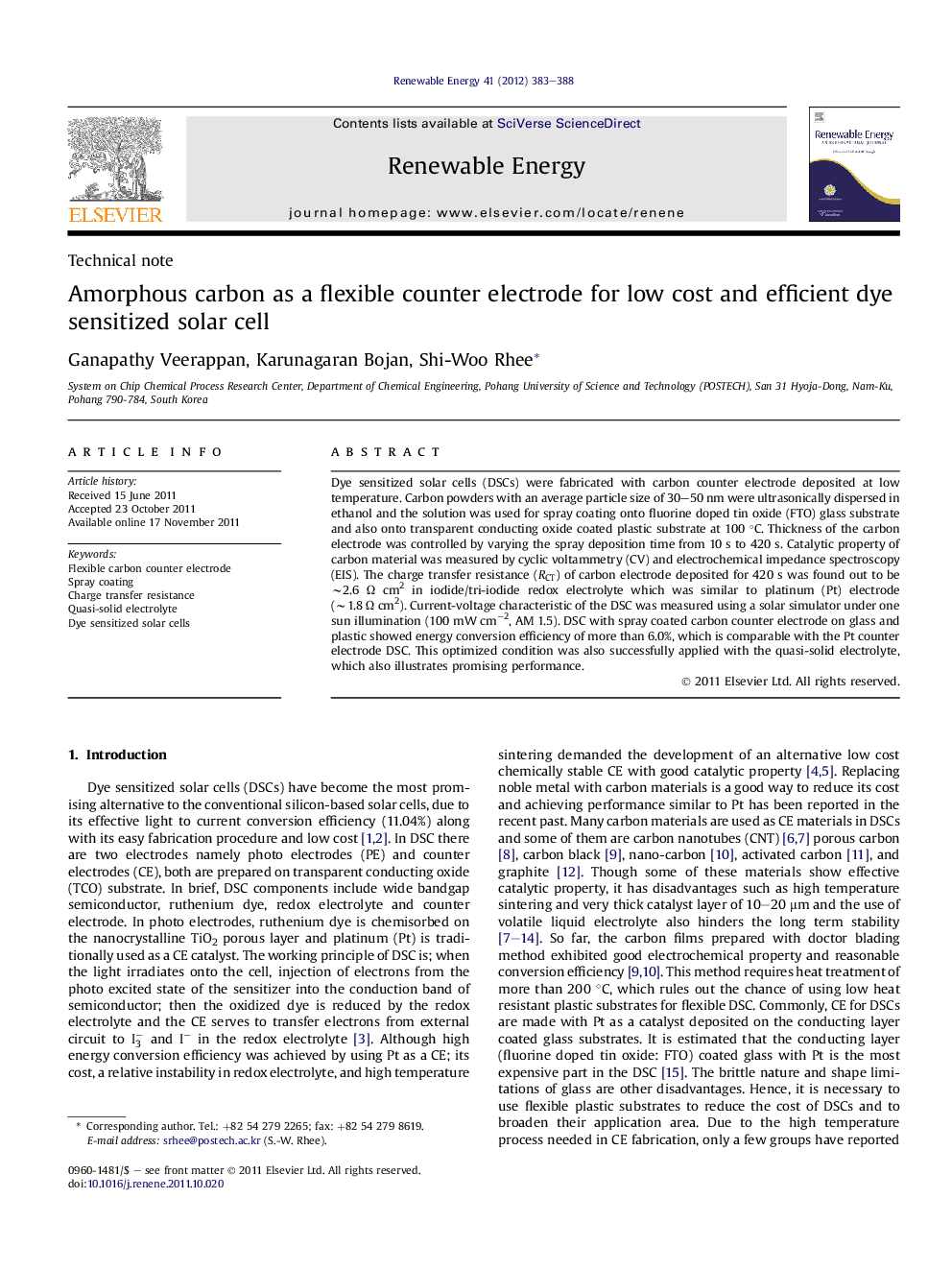| Article ID | Journal | Published Year | Pages | File Type |
|---|---|---|---|---|
| 301134 | Renewable Energy | 2012 | 6 Pages |
Dye sensitized solar cells (DSCs) were fabricated with carbon counter electrode deposited at low temperature. Carbon powders with an average particle size of 30–50 nm were ultrasonically dispersed in ethanol and the solution was used for spray coating onto fluorine doped tin oxide (FTO) glass substrate and also onto transparent conducting oxide coated plastic substrate at 100 °C. Thickness of the carbon electrode was controlled by varying the spray deposition time from 10 s to 420 s. Catalytic property of carbon material was measured by cyclic voltammetry (CV) and electrochemical impedance spectroscopy (EIS). The charge transfer resistance (RCT) of carbon electrode deposited for 420 s was found out to be ∼2.6 Ω cm2 in iodide/tri-iodide redox electrolyte which was similar to platinum (Pt) electrode (∼1.8 Ω cm2). Current-voltage characteristic of the DSC was measured using a solar simulator under one sun illumination (100 mW cm−2, AM 1.5). DSC with spray coated carbon counter electrode on glass and plastic showed energy conversion efficiency of more than 6.0%, which is comparable with the Pt counter electrode DSC. This optimized condition was also successfully applied with the quasi-solid electrolyte, which also illustrates promising performance.
► We used amorphous carbon as a counter electrode catalyst. ► Tri-iodide reduction by amorphous carbon is comparable with the platinum catalyst. ► Low temperature process for carbon electrode with quasi-gel electrolyte showed good stability.
